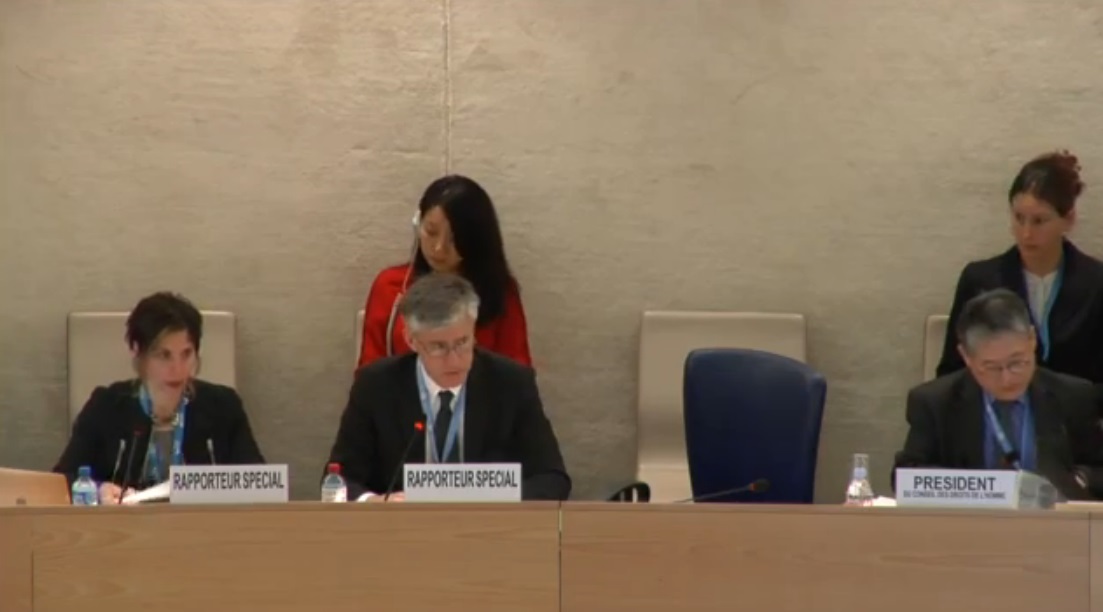Press Release
The United Nations Special Rapporteur on the issue of human rights obligations relating to the enjoyment of a safe, clean, healthy and sustainable environment, John H. Knox, participated in an interactive dialogue in the framework of the 31st session of the United Nations Human Rights Council in Geneva, Switzerland on 2 March.
On the occasion of the interactive dialogue, the Special Rapporteur presented his two most recent reports concerning climate change and the implementation of human rights obligations relating to the environment. In both reports, the expert emphasized access rights to information, participation and justice in environmental matters. Whereas in the first report on climate change and human rights, the Special Rapporteur reaffirmed the procedural obligations of States contained in human rights standards and articles 6 of the UNFCCC and 12 of the Paris Agreement, among others, in the second report, he described possible methods of implementing human rights obligations relating to the enjoyment of a healthy environment.
At the regional level, the expert underscored the negotiation of a regional agreement on the right to information, participation and justice in Latin America and the Caribbean. As he noted, when adopted, the agreement will provide invaluable support to secure the effective enjoyment of those rights. It will also help to enhance domestic laws implementing multilateral environmental agreements and domestic policies in other areas, including climate change, chemicals and waste management, and biological diversity.
During the interactive dialogue, the delegations of the Plurinational State of Bolivia, Brazil, Chile, Costa Rica, Cuba, the Dominican Republic, Ecuador, El Salvador, Mexico, Paraguay and the Bolivarian Republic of Venezuela delivered statements. On behalf of CELAC, the delegation of the Dominican Republic thanked the Special Rapporteur for the recognition of the efforts of the region to achieve a regional agreement on Principle 10. The agreement, she said, will contribute to strengthen national standards and compliance with international standards on human rights and the environment.



